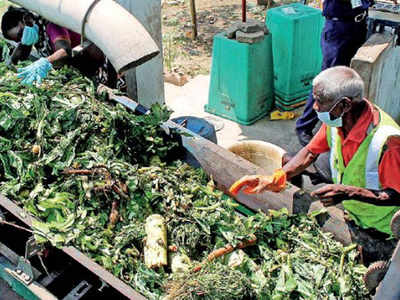The Hindu 27.07.2013
Bright streets, courtesy bio-gas

Intermittent power cuts are no longer a barrier to
adequate illumination on a small stretch of East Coast Road. The
Mamallapuram town panchayat’s move to install a bio-gas plant has not
only helped provide continuous lighting and save money but has also
become a model for study as is evinced by visits by students to the
plant.
The 100 cubic metre bio-gas plant, installed
at a cost of Rs.20 lakh in a compost yard, uses 500 kilograms of
bio-degradable waste to produce 40 cubic metre of bio-gas every 12
hours. This is used to run a 10 kilowatt (KW) generator that produces 8
KW of electricity which powers 30 street lights. Each of the lights — a
96 watt compact fluorescent bulb — has been functioning from 6 p.m. to 6
a.m. without any interruption for the last three months.
On
an average, around 5,000 kilograms of garbage is generated daily in
areas under the civic body. Prior to the tapping of bio-gas-generated
power, the civic body used to shell out Rs.6,600 a month to the State
electricity authorities for powering the 30 street lights. Now, the
total cost of operating them has come down to only Rs. 600.
Civic
body officials said the bio-degradable waste generated by various
establishments would be more than sufficient to operate 3 bio-gas
plants. The electricity generated from such plants would be sufficient
to run around 60 to 90 more streetlights, they added.
Schools
seem to have chosen the plant as a regular stop on education trips.
Recently, a batch of students from a school in Kilpauk visited the plant
on their way to Mamallapuram.


